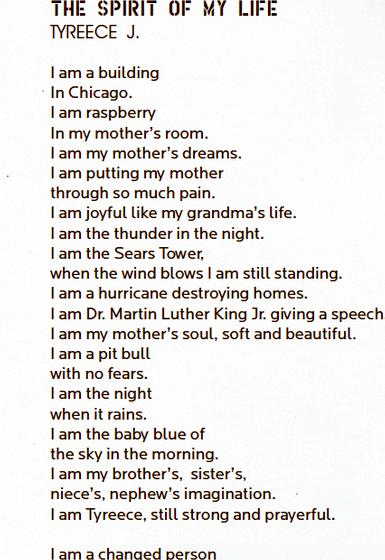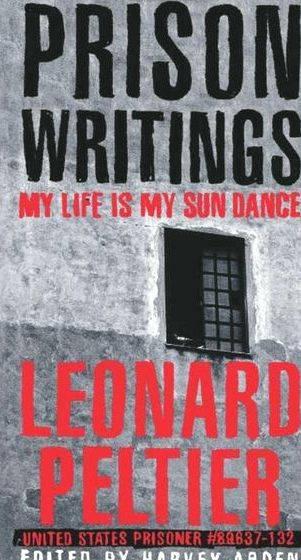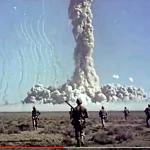Prison Writings is a book with extremely emotional and potent writing. One can not help but be affected when reading it. Everything that is happening to Leonard Peltier and everything that happened at Pine Ridge are all results of colonialism. On could go so far as to say that if we had never discovered this land Leonard would be living peacefully with his family right now. In that way we can connect Morning Girl with the text. Here is a excerpt from Prison Writings.
My own personal story can’t be told, even in this abbreviated version, without going back long before my own birth on September 12, 1944, back to 1890 and to 1876 and to 1851 and, yes, all the way back through all the other calamitous dates in the relations between the red men and white, back to that darkest day of all in human history: October 12, 1492, when our Great Sorrow began (Peltier, 50).
This shows just how native peoples feel about Columbus. Another book that takes an alternative look at history is A People’s History of the United States by Howard Zinn. This book takes a look at our history from a native point of view starting from the time of Columbus on.
As the book is written by one who is a captive, it is interesting to compare it to The Life of Olaudah Equiano, or Gustavus Vassa, the African as the is a narrative of Equiano’s captivity as a slave. It is also interesting to see how different indigenous people react to colonization and captivity by an outside people.
Leonard actually makes direct statements on colonialism. When the oppressors succeed with their illegal thefts and depredations, it’s called colonialism. When their efforts to colonize indigenous peoples are met with resistance or anything but abject surrender, it’s called war.
When the colonized peoples attempt to resist their oppressions and defend themselves, we’re called criminals (Peltier, 44).
The subtitle of Prison Writings is my life is my sun dance. Leonard refers to the sun dance several times in the book. It is a ceremony where chosen people endure pain for healing and to get visions. Leonard’s spirituality is very important to him, as is the history of his people. Lame Deer, Seeker of Visions is a book which can help the reader understand the background of that spirituality and strength. Another good book for this is Crazy Horse, Strange Man on the Oglalas .
Another theme of this book is the fight of indigenous people to save their homes, culture, dignity, and even lives. Sometimes the fight is just to cope in the world as it is today. Leonard wrote, We must be an army of one in the endless struggle between the goodness we are all capable of and the evil that threatens us all from without as well as within (Peltier, 208). There are two books which follow this struggle in current times like Prison Writings. One is No Telephone to Heaven in which Michelle Cliff describes the fight of indigenous people to free Jamaica. Another is The Lone Ranger and Tonto Fistfight in Heaven by Sherman Alexie. This is a series of short stories based on the Spokan Indian Reservation.
The book begins with an introduction by Chief Arvol Looking Horse. He states that Leonard Peltier is a son of the People, and that he is wrongfully imprisoned.

There is the a preface by Ramsey Clark, a former Attorney General of the United States. He brings to light the circumstances behind Leonard’s imprisonment and also states that he was wrongfully imprisoned.
Leonard begins his writings by telling a bit of the horror of imprisonment. He talks about having to be constantly on guard, and describes his situation as he is writing at that exact moment.
He then moves into the circumstances that brought him to imprisonment from his own point of view. He had been working with AIM. There was a siege going on at Pine Ridge where the people there (mostly women and children) were in danger, so he went there to help protect them. He states that he does not know himself what exactly happened to the two agents that were killed that morning.
He moved to Canada and hid out there until he was captured by the RMP. He was then extradited under false pretenses to the United States and put to trial. He was found guilty (after four others who were suspected were realized) and sent to prison.
Leonard then describes his life in prison, and some of the injustices that have happened to him since he became imprisoned. It gives a real view of what prison life can be like. Leonard has fought for more rights in prison ever since he got there.
There is also beautiful poetry interwoven with the prose of the book. Leonard shows a resistance and spirituality that can not be broken.
Students should me made aware that this is a current plight, and not something in the past. Studies Could be made into the happenings and the legal proceedings. As literature, I think the voice would be an interesting topic as it changes throughout. Here are some other questions and ideas for projects:
Leonard’s changing feelings are apparent throughout the book. Take some quiet time to think about how you are feeling, then write on how you feel. Be honest with yourself, see what images the writing brings. Does it come out in the form of a poem, or paragraph, or is it more of a diary? Allow students who are willing to share their writing with class, or work in small groups. You can also talk about specific sections of the book and how Leonard is feeling at that point.
Write a letter to Leonard:
Have the class write a letter to Leonard Peltier explaining their reactions to the book, and maybe asking questions to him about his writing and his experiences.
There are many examples in history of writers (both real and fictional) who became famous, or even learned their craft of writing while in prison or captivity, can you name some? What do they have in common with Leonard Peltier? What is different?
Leonard is considered by many to be a political prisoner. What does this mean? Give some reasons why he would be a political prisoner.
The tragic events at Pine Ridge stem from the remnants of colonialism in the United States. What are some of the ideals that made it happen? How can we work to overcome those ideals?





 Mystery story writing year 3
Mystery story writing year 3 Writing a letter to your old friend
Writing a letter to your old friend Writing your own will australia be bombed
Writing your own will australia be bombed Decompressive craniectomy guidelines for writing
Decompressive craniectomy guidelines for writing My ontario writing portfolio clip
My ontario writing portfolio clip






